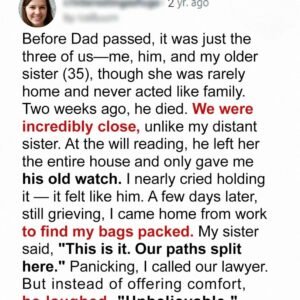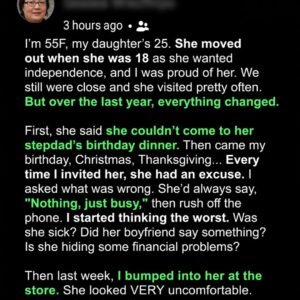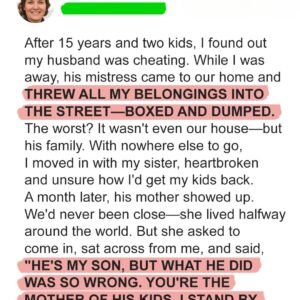My son came home from school, eyes brimming. “Mom, I lost all my money,” he whispered. “I went to the toilet during break, and when I came back, my pencil case was empty.”
I knew there was no point questioning the class. Everyone would just deny it. So I said, “Let’s get creative.”
“Creative?” he asked, confused.
“Remember our summer project idea? Let’s start now.”
He was still upset—it wasn’t just the money. He’d saved for weeks, doing chores, skipping candy.
“I just want it back,” he mumbled.
“Sometimes we don’t get back what we lost,” I said gently. “But we can build something better.”
I pulled a bag of lemons from the pantry. “We’re going to sell lemonade.”
His eyes lit up, just a little. “Like with a stand? Like in cartoons?”
“Exactly. This Saturday. You and me.”
We made a plan. He researched the perfect lemonade ratio. He even added a word to the sign: “Leo’s Lemonade – 50¢ a cup. Fresh. Cold. Honest.”
Saturday came. Mr. Franco, our neighbor, bought two cups and said, “This is good!” Leo beamed.
By noon, we’d sold over thirty cups. Teenagers took selfies. The mail carrier called it the best lemonade she’d had in years.
Later, Leo counted the cash. “Mom, we made more than I lost.”
I ruffled his hair. “And you did it all honestly.”
He grew quiet. “I think I know who took my money.”
“Do you want to tell me?”
“Maybe Ivan. He saw me counting it. He was near my desk when I got back.”
“Are you sure?”
“No,” he said. “But I don’t want to take revenge. That’s why I wrote ‘honest.’ I want to show you can still win by being good.”
I hugged him tight. “You already are.”
We kept the stand going each weekend—added cookies, a cooler, a water bowl for dogs. People came to chat with Leo, share stories, and leave donations.
Then one Sunday, Ivan showed up. Leo froze.
“I heard your lemonade’s good,” Ivan said, not meeting our eyes.
“Want a cup?” Leo offered.
Ivan nodded, took a sip. Then, quietly: “I’m sorry. I took your money. I was hungry. I thought you wouldn’t notice.”
Leo paused. “Okay.”
Ivan blinked. “Okay?”
“You could’ve just asked. But thanks for telling me.”
Then Ivan asked, “Can I help?”
Leo thought for a moment. “Okay. But you’re squeezing lemons.”
Ivan grinned. “Deal.”
From then on, they worked together—new recipes, bigger crowds. Eventually, they decided to use some profits to buy food for the homeless. “We’re making money honestly,” they said. “Let’s use it for something good.”
Word spread. A local paper wrote about the “Two Lemonade Boys.” Donations came in. By summer’s end, they’d raised over $600. Half went to a food bank. The rest they saved.
At our little celebration, Leo asked, “Was it good my money got stolen?”
I smiled. “Something good came from it. That’s what matters.”
As I tucked him in, I realized—what began as loss became a lesson in kindness, honesty, and forgiveness.
Justice doesn’t always look like punishment. Sometimes, it’s growth.
Leo could’ve blamed. Instead, he built. He forgave. And he inspired someone else to change.
If someone’s wronged you and you feel powerless—remember: you can still choose your next step.
Turn a loss into a lesson.
Respond with integrity.
And maybe, help someone else find their way too.





